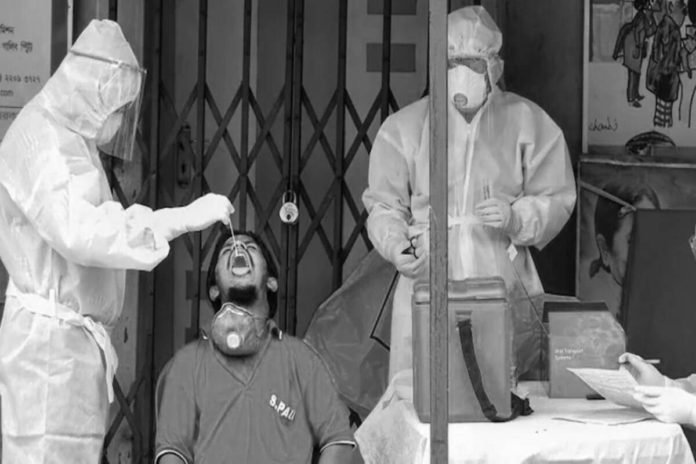India recorded 6,531 new COVID-19 cases, 315 deaths in the last 24 hours, pushing the total death toll to 4,79,997, as per data released by the Ministry of Health on Monday (December 27, 2021). The active cases stand at 75,841.
A decline of 925 cases has been recorded in the active COVID-19 caseload in a span of 24 hours. The country also recorded 7,141recoveries today, taking the total number of recoveries to 3,42,37,495.
India has reported a total of 578 Omicron cases, according to the Health Ministry data. At least 151 have recovered, the Health Ministry said. Madhya Pradesh and Himachal Pradesh on Sunday reported their first cases of the Omicron variant.
Delhi has recorded the highest number of Omicron cases at 142, followed by Maharashtra at 141, Kerala 57, Gujarat 49, Rajasthan 42, Telangana 41, Tamil Nadu 34 and Karnataka 31. The Delhi government on Sunday decided to impose a night curfew from December 27 after 290 Omicron variant cases were reported in the country in one day. The night curfew in the national capital will be imposed from 11 pm to 5 am.
The national COVID-19 recovery rate stands at 98.40 percent, the highest since March 2020, the ministry said.
The daily positivity rate was recorded at 0.87 percent. It has remained below 2 percent for the last 84 days. The weekly positivity rate was recorded at 0.63 percent. It has remained below 1 percent for the last 43 days, according to the health ministry.
Meanwhile, in view of the fast-spreading Omicron variant, the Central government on Saturday announced booster shots for health and frontline workers and those above 60 from January 10.
On the other hand, the cumulative doses administered in the country so far under the nationwide COVID-19 vaccination drive has exceeded 141.70 crores.
Children in the 15-18 age group will be able to register on CoWIN from January 1, Dr. RS Sharma, the chief of the platform, said. “We’ve added an additional (10th) ID card for registration, the student ID card because some might not have Aadhaar or other identity cards,” he said.
More about Omicron
The Omicron variant has been called a variant of concern by WHO based on studies that shows it has several mutations.
Still a lot of research is underway to evaluate its transmissibility, severity and reinfection risk.
The Omicron variant has been detected in several regions of the world. WHO reports that the likelihood of the Omicron variant spreading further globally is high.
It is not currently known if the Omicron variant is more or less severe than other strains of COVID-19, including Delta. Studies are ongoing and this information will be updated as it becomes available.
It is not yet clear whether Omicron can spread more easily from person to person compared to other variants, such as Delta.
However, being vaccinated and taking precautions such as avoiding crowded spaces, keeping your distance from others and wearing a mask are critical in helping to prevent the spread of COVID-19, and we know these actions have been effective against other variants.
Researchers are looking into any potential impact the Omicron variant has on the effectiveness of COVID-19 vaccines. Although information is still limited, WHO believes it is a reasonable assumption that the currently available vaccines offer some protection against severe disease and death.
It is also important to be vaccinated to protect against the other widely circulating variants, such as the Delta one. When it’s your turn, make sure to get vaccinated. If your vaccination involves two doses, it’s important to receive both in order to have the maximum protection.
According to WHO, early evidence suggests that people who have previously had COVID-19 could be reinfected more easily with Omicron, in comparison to other variants of concern. Information is still limited though and we will share updates as it becomes available.
Source: UNICEFRead more Health News
Latest update Omicron

